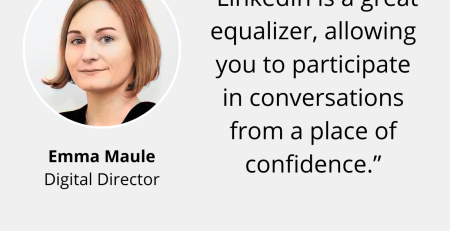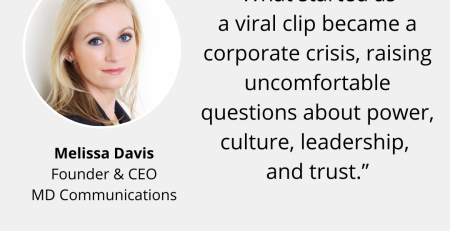Never become the story, runs a well-worn piece of advice to PR professionals. It’s a rule I broke this week, with a syndicated quote appearing in 40 international news outlets, including the LA Times, Telegraph, Guardian, Evening Standard and the Washington Post.
In my defence, I was speaking as a travelling business person caught up in the British Airways chaos – not for a client. As my plane waited on the tarmac in Belfast, where I had been for the mid-year IBA conference, I found I had quite a lot to say – first on Twitter, then to journalists.
As London’s Evening Standard wrote:
‘Melissa Davis, who runs a legal PR agency in London, was held for more than an hour and a half on the tarmac on a BA flight returning from Belfast.
‘Speaking from the plane, Miss Davis said the air conditioning had been off “so I don’t think we will be going anywhere any time soon”, but added that the passengers had been kept informed by their pilot and given water while they remained seated. She later said she and others were then told they could not transfer to other flights because “they can’t bring up our details”.’
So, not quite Ed Murrow reporting on the Blitz – but still, from a journalist’s point of view I was a reasonable find, obeying basic rules for someone who’s not adverse to coverage. Perhaps the reason (through Twitter) that I received several requests to appear on international broadcast channels to tell my story over the weekend.
In summary, I was an authentic subject – there on the scene; I had flagged my existence; I could be reached for comment; and I provided a few nuggets of information from the scene that helped illustrate the story. I also made sure that our company name was included (or at least the fact that I ran a legal PR agency).
Certainly, I was easier to find and in a chattier mood than BA’s chairman/chief executive Alex Cruz.
I now have quite a long piece of communication from him. Here’s the first part of the 400-word email I received from him…
‘Dear Customer, I know that you were affected by the IT system failure over the weekend and I wanted to contact you personally to apologise. I am extremely sorry for the significant levels of disruption and inability to communicate quickly; I understand how frustrating this was for you…’
I don’t yet feel sorry for him, but this was self-flagellating stuff.
But then it needed to be good – arriving as it did four days after the incident after widespread criticism in the media and online regarding his silence.
I’m sure he was busy. Important people are, aren’t they? A few thoughts on this from a PR perspective.
The longer you leave an expression of sorrow, an apology or a regret, the better it needs to be, and the further it needs to go. The thought in people’s heads you’re countering is, ‘He’s only saying he’s sorry because of all the flak he got.’
The less information people get, the angrier they become. The instinct is to wait until you have a perfect answer to them, so you can say their problem is solved. But if you can’t say that straight away, you still need to say something.
In the online age, figureheads matter more than ever. It may be that Alex Cruz knows next to nothing about IT, but with so much of our consumer experience – especially air travel (I don’t even get a person on passport control these days – just a biometric camera check!). When something big happens, we want to see and hear a real person.
You need to follow-up on communications. It’s fine to empathise at such length with me – I think he needs to email me again next week, checking I got my luggage, reminding me about refunds and rebookings (and have staff lined up to check what I say back).
Cruz signs off: ‘The uncertainty that these issues caused and the impact to your travel plans cannot be repeated.’
He needs to be right about that – the damage from breaking that promise could be worse for trust in his brand than the initial problems.
If you need help with a difficult piece of communication, or training to deal with one, and haven’t recently lost my bags, I hope you’ll get in touch.












